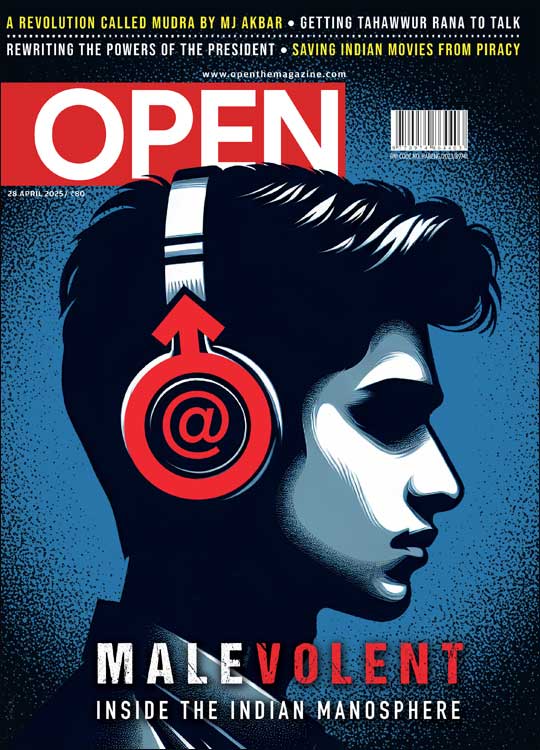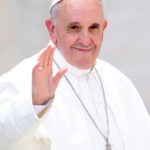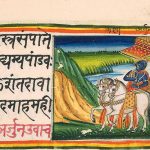The Brazenness of Bollywood
Why their Saifai shindig was neither their first, nor will it be their last
 Lhendup G Bhutia
Lhendup G Bhutia
 Lhendup G Bhutia
Lhendup G Bhutia
 |
17 Jan, 2014
|
17 Jan, 2014
/wp-content/uploads/2015/11/madhuri-bolly2.jpg)
Why their Saifai shindig was neither their first, nor will it be their last
On 8 January, seven chartered flights touched down on Saifai’s airstrip in western Uttar Pradesh. Aboard each of them was the crème de la crème of Bollywood. When Salman Khan, Madhuri Dixit, Ranveer Singh, Alia Bhatt, Zarine Khan, Hard Kaur and a number of other stars stepped out, awaiting them on the tarmac was a reception party headed by the gleeful nephew of Mulayam Singh Yadav, Dharmendra Yadav. That night, one by one, each star took the stage and performed at the finale of the Saifai Mahotsav, an entertainment extravaganza organised by the state’s ruling Samajwadi Party. The performers were cheered on by a crowd estimated at over 100,000, among them Chief Minister Akhilesh Yadav and his wife Dimple Yadav, apart from Mulayam Singh Yadav and other SP bigshots.
According to media reports, the entire 14-day festival cost at least Rs 20 crore, although the Chief Minister has denied that figure. Apart from whatever fees the celebrities were paid for their performances, Madhuri Dixit’s just-released film Dedh Ishqiya also got a grant of 25 per cent of the film’s total cost as part of the largesse, a figure placed at Rs 1 crore.
In Muzaffarnagar district just 300 odd kilometres away, meanwhile, one of the biggest tragedies in the state’s recent history continued to unfold. In relief camps for victims of the recent riots, as various news reports have been saying for weeks, children were dying of cold and people were being forced out.
Akhilesh Yadav and his party members have been pilloried for holding a festival under such grim circumstances, but the Bollywood contingent got away lightly. And what followed was typical Bollywood PR overdrive. Salman Khan, somewhat like a medieval king doling out money for his excesses, announced that he would fund 200 paediatric heart surgeries in UP and 100 in Maharashtra. He also said he had contributed Rs 25 lakh to a hospital in Aligarh. Madhuri Dixit, in between a barrage of tweets promoting her two new movies, also sent out a tweet saying, ‘As artists and celebrities, we believe in using our reach to help others through drawing attention to the needs of the day.’
Since then, there have been a number of flattering write-ups on Salman Khan in assorted newspapers. On three successive days, 11, 12 and 13 January, Bombay Times had a story about Salman Khan on its front page. One of these centered round how he spends 90 per cent of his earnings on charity, a claim supported by a solitary quote from his sister, Alvira Khan. According to a Hindustan Times report, the actor will be producing a film whose profits will be devoted entirely to charity. Khan, who rarely grants interviews, has also sat down for several of them in the past few days, though perhaps to promote his upcoming film Jai Ho as much as to shore up goodwill. In a Hindustan Times interview, when asked for his opinion on the flak he got for his Mahotsav performance, he said, “…we take that trouble [of performing]. They take back the pleasure of seeing their idol and hero who they will never get to see.”
No one expected any contrition on Akhilesh’s part for the festival, but the film stars could have done better than issue exhaustive lists of what they consider their do-gooder efforts.
Among the youngest of the Saifai performers was Alia Bhatt. A few days after her return home, one of the few people willing to speak about her presence at the event is her filmmaker father, Mahesh Bhatt. “I think I have failed as a father,” he says, in a muffled tone, “I should have stopped her from going. As someone who likes to believe I have an outward gaze, I should have been able to tell my daughter not to go.”
Mahesh Bhatt is known as one of the few Bollywood creatures who are willing to speak up on issues unrelated to their films. According to him, he has asked his daughter to exercise greater care in her choices from now on. “I don’t interfere in my children’s lives,” he says, “And Alia is a smart young woman. She knew what had happened at Muzaffarnagar. She wasn’t aware of its current severity.” This claim of awareness, of course, is questionable. Just a few months ago, when Karan Johar asked her on the TV show Koffee With Karan who the President of India was, she replied “Prithviraj Chavan.”
Mahesh Bhatt claims the reason that Bollywood becomes party to such an incident is not that the industry’s individuals don’t care. “God only knows how much many stars silently contribute to society through charities,” he says. “They tend to be inward-looking and insulated from the real world. The industry often does not permit them to look at anything beyond themselves. But don’t accuse them of not caring.”
Dale Bhagwagar, a film publicist who has in his career of over 15 years worked with top stars like Hrithik Roshan, Priyanka Chopra and Shilpa Shetty, tries to throw light on the inner workings of stars. “They are mostly all clueless, really,” he says, “Each star can only function with a coterie of people around him/her, a team telling them everything that s/he must do—from the image to portray to the party to be seen at. They cannot decide anything for themselves.” By way of example, he offers the case of Vivek Oberoi’s press conference where the actor accused Salman Khan of threatening him: “Vivek’s instinct was to talk about it. And his then publicist encouraged it. That was insane, suicidal really. His career took a beating.” Bhagwagar was appointed Oberoi’s image manager after that incident.
One of Bhagwagar’s current clients, Evelyn Sharma, a little-known German-Indian actress and model, was also part of the Saifai Mahotsav. She went on stage a few days before the Bollywood heavyweights did. According to Bhagwagar, Sharma had no idea of the riots since she has been in India for only about two years. “An agency got in touch with Evelyn for the show,” he says, “The money was good and she readily agreed.”
Once Bhagwagar learnt that some leaders were speaking against the Mahotsav, he swung to her defence. He drafted a press release stating Sharma was disturbed by the controversy around her performance. Today, Bhagwagar appears disappointed that the performance of the other stars got more airtime than his client’s. “Remember,” he says, “I was the first one to get [the news] out.”
Perhaps, as some suggest, Bollywood personalities are too preoccupied to look beyond themselves, but to stretch this to explain their general insensitivity is to miss the point. Stars actively seek out politicians for patronage. According to Abha Singh, a well-known advocate and human rights activist who has been trying to hasten the court proceedings against Salman Khan in his 2002 hit-and-run case, “Someone like Salman, because of his cases, requires protection. He will claim he is politically naïve, yet he will be seen campaigning and promoting politicians of all kinds. So if a leader like Mulayam wants him on stage, why will he refuse?”
According to Abha Singh, while other hit-and-run cases in Mumbai—like those of Alistair Pereira in 2006 and Nooriya Haveliwala in 2010—have already seen convictions of the guilty, Khan’s case has dragged on for nearly 12 years because of his cosiness with politicians. “Often we would find that the police had failed to issue Salman summons,” says Singh, “They would claim he was outside the city, and that same evening he would be seen participating in some event [in town].” It is thus not strange that an annual Mumbai Police show draws a Bollywood attendance unseen even at film award shows.
In 2013, eleven years after Khan’s hit-and-run incident, the magistrate hearing the case called for a fresh trial, ordering that the charges against the actor be changed from that of ‘rash and negligent driving’, which can get him at most a prison time of two years, to ‘culpable homicide not amounting to murder’, which attracts a maximum penalty of 10 years. While this increase in severity satisfies Singh, what this entails is that all witnesses must now be re-examined. Most of those who were injured in that accident, including the kin of the victim who died, Nurullah Sharif, were pavement dwellers who moved away from the area after the incident; their current whereabouts are unknown. “Now with their address unknown, I fear the case will drag on even longer,” says Singh.
The current parole of Salman Khan’s friend Sanjay Dutt also makes for a curious story. Since his imprisonment in mid-May 2013, Dutt has been able to get out twice for a period that adds up to almost two months already. In October, he was granted a 14-day-long furlough, and another 14 days were added as an extension on the grounds of his ‘ill health’. He was again out in December on parole for 30 days, and has now applied for a 30-day extension citing his wife’s ill health.
“How is it that he has gotten paroles and furloughs so easily, while the pleas of many others involved in the 1993 blast case have been ignored?” asks Singh, “The medical reports Sanjay surrenders when applying for furloughs and paroles are hardly ever scrutinised carefully.”
Before Dutt applied for an extension of parole on the plea of his wife’s illness, it’s interesting to note the media coverage her health got. “Once, it was a tumour in the liver, and now one hears tuberculosis,” says Singh, “But the most interesting bit is how it [regularly] appears, supported by quotes from an anonymous source, in newspapers.”
A few years ago, when Amar Singh was still a powerful politician in the Samajwadi Party and a close friend of Amitabh Bachchan, he got involved in a spat at a film awards show in Dubai. Says an individual well acquainted with Bachchan and who was present at the event, “[Bachchan and Singh] came in later for the Zee Awards show and were seated in the eleventh row. Amar Singh created a big scene then, and Subhash Chandra of Zee in solidarity walked up to Karim Morani [the organiser of the show and a friend of Shah Rukh Khan] and slapped him.” Later that night, when Shah Rukh Khan came across Amar Singh, he told him, “Aap kaafi goondagardi karr rahein hain (You are behaving like a thug).” According to the source, Singh was so incensed that he called all the big distributors in UP, asking them to ban all Shah Rukh Khan films from theatres. “The distributors didn’t want to do that since Khan was the biggest star then and they made most of their money off his work, but who could refuse Amar Singh then? This ban was only lifted later, once Amitabh Bachchan called the two (Khan and Singh) over to his house and made them bury their differences.”
According to this source, even a Shah Rukh Khan, with all his connections, isn’t powerful enough to take on a politician. “Stars simply can’t afford to have themselves in their bad books,” he says, “Because when a situation gets tricky, no one’s going to be around to support you.”
This was on clear display back in 2010, when the Shiv Sena threatened to ban Shah Rukh Khan’s film, My Name Is Khan. Few other top stars thought it wise to intervene on Khan’s behalf or offer him their support in public. And when Jaya Bachchan was asked about her family’s silence over the issue on NDTV, she said with palpable restraint, “I had my battles. I fought it single-handedly—with the support of my family. Nothing happens.”
There is nothing more palpably hypocritical about the Hindi film industry than its sudden engagement of society on larger issues whenever a film is set for release. Apart from routine appearances on comedy skits and soaps on TV, these stars suddenly pop up on news channels discussing issues of national importance—or attaching their names to social causes.
Thus you will see a farcical debate—as one did last year on Headlines Today—about whether porn encourages men to become rapists, with the cast of Shootout at Wadala providing their views on the subject seated cosily in front of the film’s posters. You will see an Imran Khan, on the anvil of his film Delhi Belly, filing a PIL challenging Maharashtra’s ban on anyone under the age of 25 drinking liquor. And you will see Salman Khan defying grammar and spellings in a tweet like this: ‘Request the to the awam of pakistan, member’s of the press, govt of pakistan, president zardari, a humble request’, ‘It would be the most amazing gesture, to send surabjeet back to his family after 30 years. Hope u support me like its your own cause’ and ‘B a part of 1 family’s happiness’. What’s the big occasion? Well, there’s his first Indo-Pak spy thriller, Ek Tha Tiger, up for release.
Or consider what happened by the sea in Bandra on the night of 30 December 2012. A group of individuals, alleged to be bodyguards of Salman Khan, dragged fishing nets, plastic sheets and other fishing equipment off some boats parked outside a Koli household of traditional fisherfolk on Chimbai Beach, and burnt them. The only people in the house were three women, all of whom confronted the men. The bodyguards, they claim, were inebriated, and in the ensuing melee, the men hit them with a bamboo stick.
It was the conclusion of a fight between Salman Khan’s family and the Falcons, the Koli family. The latter claim the Khans want them to sell their property to them.
In 2011, Salman’s father Salim Khan had bought two sea-facing bungalows that look the Falcons’ home. “I believe our house, boats and nets spoil their sea-facing view,” says Lawrence Falcon, the 65-year-old head of the family.
The police filed a non-cognisable offence report against the bodyguards, but no arrests have been made so far. Ironically, Lawrence Falcon has been working as a watchman at Galaxy Apartments, where the Khans live, for over 40 years and has known Salman Khan since he was a child. Once, when the actor was on his way out of home in his car, he summoned Falcon. “Have you become a dada to put in a complaint against me?” Falcon recalls Khan asking him.

/wp-content/uploads/2025/04/Cover-Manosphere.jpg)











More Columns
Reformer Pope Francis dies aged 88 Open
The Memory Gap V Shoba
A Ceasefire Never Meant To Be Sudeep Paul